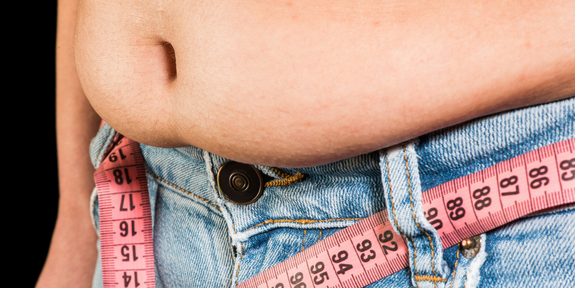
“I want to lose weight!” It’s quite possibly one of the most common self-improvement goals you’ll ever hear. The internet is literally over-loaded with tips on: “how to lose weight” or “how to drop 10lbs before the summer”. The only problem is, it’s probably the wrong goal. In this article I’m going to teach you what you really need to focus on to get the body you want and how to make sure you’re doing it the right way.
Fat Loss NOT Weight Loss
First thing’s first, when people talk about wanting to lose weight, what they actually want to do is lose body fat, and there’s a big difference between the two.
The sooner you get that concept into your head, the sooner you’ll stop sabotaging your progress!
I’ve had clients who previously lost a lot of weight in quite a short amount of time by doing very, very low calorie diets with no exercise. Sure, they were able to say “I’ve lost 10kg in the past two months” but here’s the problem, they didn’t look particularly good (and they ended up gaining all that weight again, but that's another story).
Skinny Fat
What's wrong with fast weight loss? Well, it's easy to lose a huge amount of muscle along with the fat. Muscle weighs more than a similar volume of fat so it’s very easy to lose a lot of weight as muscle and still have rolls of fat covering your body. Muscle looks good (on both men and women) so losing it will make your body look less toned and you might actually look “flabbier” after a strict diet than before. This is common amongst serial dieters who don’t do much exercise. They may weigh less but still have a decent amount of body covering a frame with very little “toned” muscle. Not the ideal body most people are looking for.
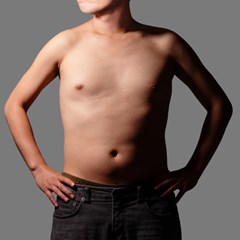
To add insult to injury, losing a lot of muscle actually lowers your metabolic rate meaning you need to eat less to maintain your smaller frame. No one wants to survive on a super low-calorie diet for the rest of their life so adding muscle to your frame (again, I’m speaking to men and women) allows you to eat more (through added muscle and the exercise you need to build it) and look better. Win/Win, right?
How to Lose Body Fat & Maintain (or build) Muscle
There are 3 really basic rules to follow to make maintain (or build) muscle while you lose body fat:
- Don’t drop your calories too much: the faster you lose weight, the higher the chance you’re losing considerable muscle along with the fat. Aim for less than 0.5kg/week
- Keep your protein intake high: when losing body weight, higher protein intakes can actually help you retain muscle mass which would otherwise be lost through dieting. A good rule of thumb is no less than 1.8g of high quality protein per kg of lean bodyweight. You could even go as high as 2.4g/kg or higher with no health issues
- Lastly and most importantly… LIFT WEIGHTS. Weight training is simply the most effective way to build and maintain muscle mass and is especially important when you’re dieting to keep your precious muscles intact
How to know you're not losing muscle
The 3 tips above are the framework of a good strategy to lose body fat and maintain muscle but once you’ve started your diet and exercise plan, how you know when you’re doing it successfully. Well here are strategies I use with my own clients to make sure they’re losing the right kind of weight.
1. Weigh Yourself Daily
If you only weigh yourself once or twice a week, you’re not getting a true picture of your bodyweight. Your body weight can vary hugely from day to day due to many different factors like the amount of salt you eat, how much you drink, how much you sweat, stress levels, hormonal changes etc… Weigh yourself daily, first thing in the morning, after going to the toilet and before eating or drinking anything. Then calculate your weekly average (add all the values and divide by the number of values, so divide by 7 if you measure it every day). Then compare your weekly averages as your diet progresses. It’ll give you a much better picture of how you’re diet is doing.
Just remember, the number on the scale isn't much use on it's own but alongside other methods, it's a useful tool to measure your progress.
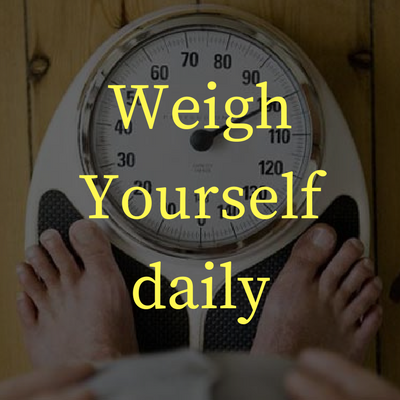
2. Take Body Measurements
Measuring body fat is not easy (I’ll talk about those crappy Body Fat scales in a moment) but you can easily take measurements of your waist, hips, chest, arms and thighs as often as once a week or maybe once every two weeks. Usually, if you’re losing weight and losing cm around your waist and hips (where most people store fat the longest) and maintaining measurements in your arms and chest (especially if you're a guy) then you’re probably losing fat and maintaining muscle. It’s a little more nuanced than that and depends on the amount of weight you have to lose, the amount of muscle you start with and your training experience but it’s a good indicator of progress.
***Don’t bother with body fat monitor scales to try and monitor your body fat as you diet. As the value they give is affected by your level of hydration, they are simply far too inaccurate to be useful.
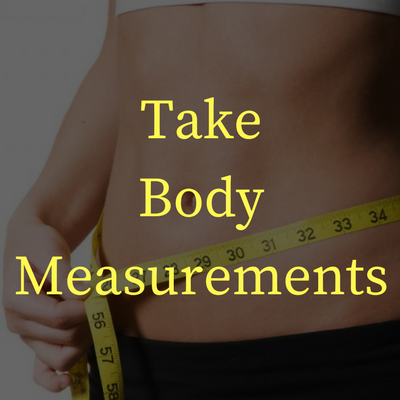
3. Measure Your Strength
Unless you’re dieting very strictly for an extended amount of time (like for a bodybuilding/physique competition) there is no reason for you to lose strength. In fact virtually every client I have worked with has managed to increase their strength while losing body fat because of a well planned diet and exercise strategy. If you are maintaining strength on a diet, it’s pretty reasonable to assume that you’re maintaining your muscle mass too. You should keep a record of your exercises, weights, sets and reps and use it for comparison as you get further into your diet. The great thing is, if you’re new to lifting weights you should have no problem losing bodyweight and gaining strength (known as Newbie Gains). A basic excel spreadsheet detailing your gym routine is all you need.
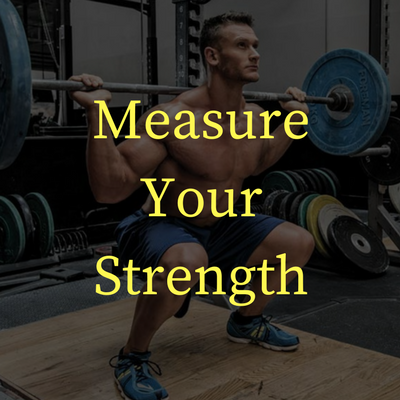
What gets measured gets managed
Just like any process, if you want to be able to improve and refine it, you need to be able to measure your progress in a repeatable way. The same goes for weight loss. Now you know what type of weight to lose and you know how to measure your progress. So get out there and start losing some body fat.
Eat well, folks.
Have you been working out? You're looking good!
If you liked the article why not share the love:
- Loading X messages...


Write a comment